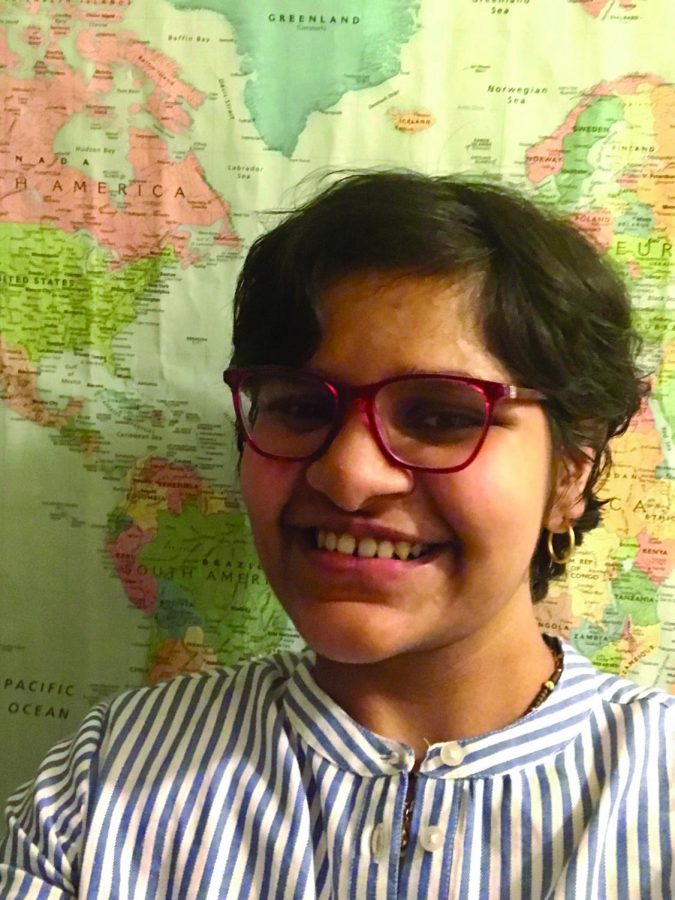Youth make strides for climate justice
From Sept. 20 to Sept. 27, students around the world walked out of schools in the middle of the day to protest the lack of governmental action on issues of climate change. This event was known as the Global Climate Strike, started by a 16-year-old girl from Sweden named Greta Thunberg. After convincing her parents to go vegan and stop their air travel, she had the idea to go on strike for the climate when she heard about activists from Marjory Stoneman Douglas High School going on strike to protest against school shootings.
What started as her and a few students protesting near the Swedish Parliament became a movement that spread internationally. At the United Nations, she reprimanded world leaders more than twice her age, saying “You have stolen my dreams and my childhood with your empty words. And yet I’m one of the lucky ones. People are suffering. People are dying. Entire ecosystems are collapsing. We are in the beginning of a mass extinction, and all you can talk about is money and fairy tales of eternal economic growth. How dare you!”
Her movement hasn’t come without criticism. Michael Knowles, a conservative pundit from the Daily Wire, referred to Thunberg’s autism diagnosis in a widely criticized statement: “If it were about science it would be led by scientists rather than by politicians and a mentally ill Swedish child who is being exploited by her parents and by the international left.” President Vladmir Putin of Russia also took issue with Greta’s outspokenness, saying “No one has explained to Greta that the modern world is complex and different and people in Africa or in many Asian countries want to live at the same wealth level as in Sweden.”
Having been one of many student speakers at Greensboro’s Climate Strike, I had the opportunity to see several young students there, most of whom were still in elementary school. With their teachers beside them every step of the way, they were carrying posters they had colored, chanting “Save our Earth!” as they walked down Elm Street. I spoke to one of the teachers, who said that their art about climate change was on display at the school, which shows that they were engaging in interdisciplinary education. Given that they were in elementary school, they didn’t stay at the strike event for too long, continuing to march down the street. One of the posters even said “Save our mother” with an Earth drawn on it.
Their activism wasn’t based on ideology as much as it was based on love for the Earth. Thunberg herself was recognized with Amnesty International’s most prestigious “Ambassador of Conscience” award, but she declared that the award belonged to everyone who took part in the marches. No one is too young to make a difference, and children today are far more informed of their rights and responsibilities, even if they can’t vote.
Although Greta Thunberg has contributed significantly to the movement, it must not eclipse the concerns that people of color who have been advocating for climate justice for years have been ignored in the political sphere, especially minorities. Protests involving indigenous people at the site of the Dakota Access Pipeline, which is on tribally-owned land, have been met with police firing rubber bullets, conducting strip searches and violently arresting Native people, and the Flint Water Crisis happened in a town where 56% of its residents were black.
According to a study done by the University of California, the worst effects of climate change were often felt by low-income individuals and minorities. It’s important to know that there are other youth activists of color who are advancing the movement forward to represent their communities. 14-year-old Autumn Peltier has just been appointed Chief Water Commissioner of the Anishinabek Nation and has just been nominated for the 2019 International Children’s Peace Prize, and 16-year-old Isra Hirsi, the daughter of Ilhan Omar, is the co-founder of the US Climate Strike.
The Global Climate Strike is over and we should be proud of Thunberg’s efforts to make it happen. We need to center the voices of minorities most affected by climate change and work to make sure that we are including racial equity in every deal we demand. It is not enough to demand green jobs and then prioritize white workers for employment over the minorities who may have lost their jobs in company closures. There must be regulations for where alternative energy sources are built, so that it does not encroach over what little tribal land is left. In all aspects of activism, including environmental activism, it is important to work together to elevate marginalized voices, and when that happens, it is important that legislators listen.
Editor’s note: This story originally was published in Volume 106, Issue 2 of The Guilfordian on Oct. 11 2019.







Jordan E S Keller • Oct 28, 2019 at 11:05 pm
I think that there’s a mix up with the article title/tags and the body text!
Ramya Krishna • Nov 18, 2019 at 9:19 pm
Hi Jordan, thanks for your comment! The article tags consist of some of the major names and concepts mentioned in the article, so there might be some overlap.
-Ramya Krishna, Web Editor